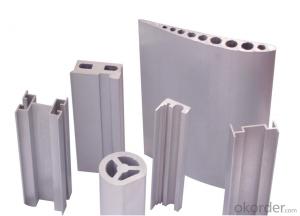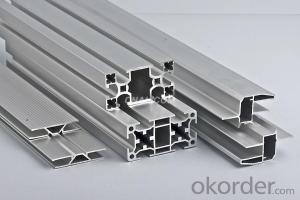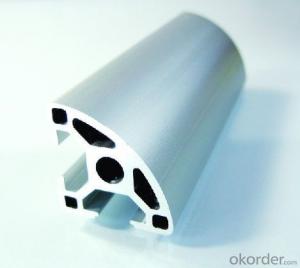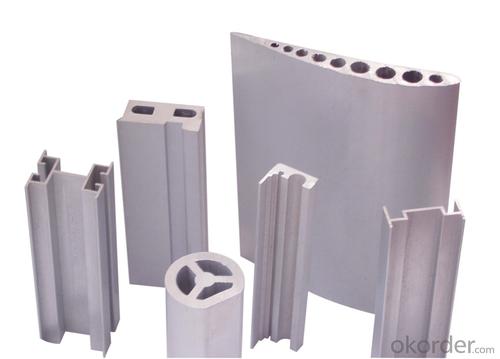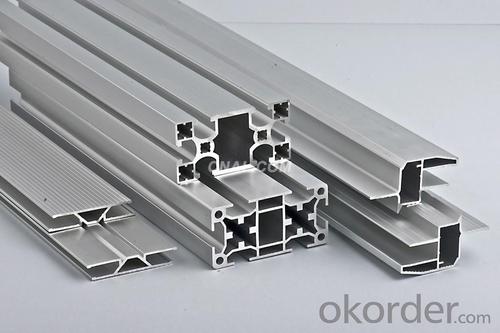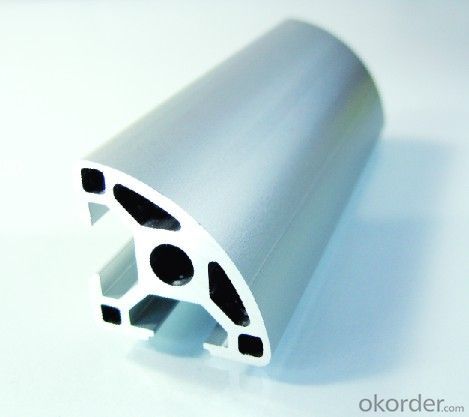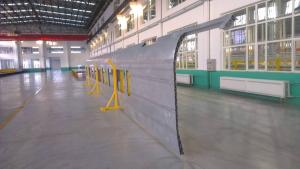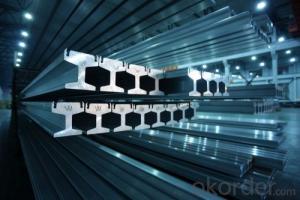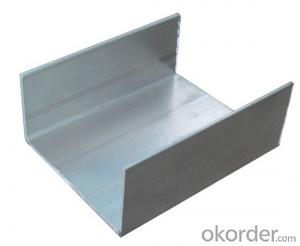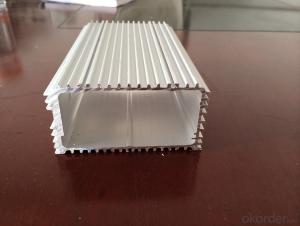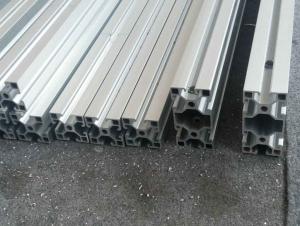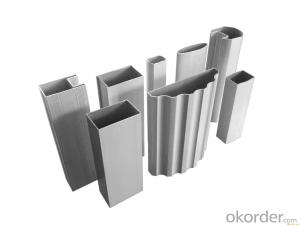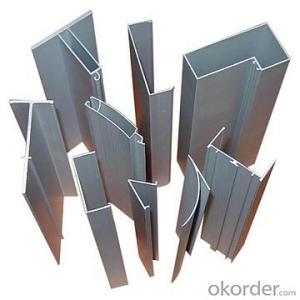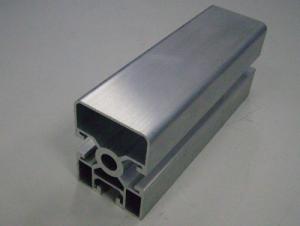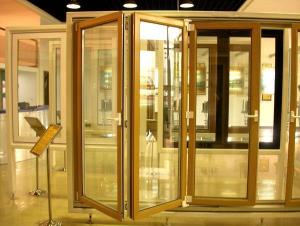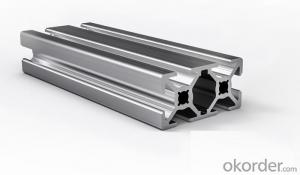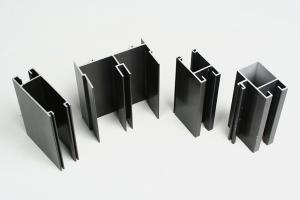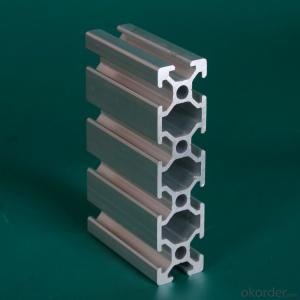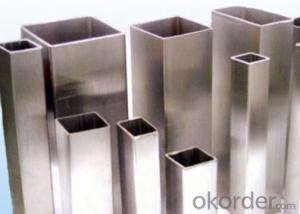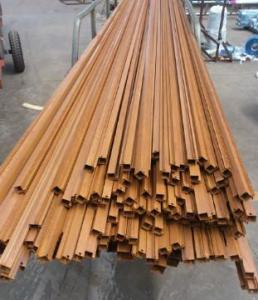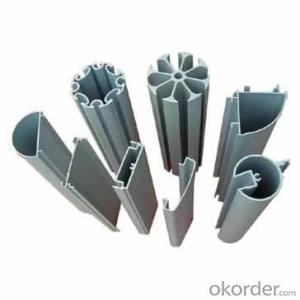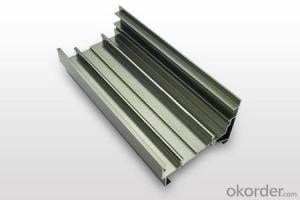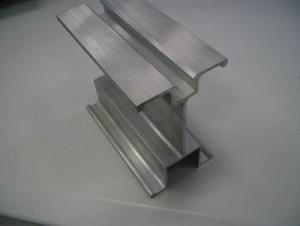Aluminum Trim Profiles for Aluminum Profile Extrusion
OKorder Service Pledge
OKorder Financial Service
You Might Also Like
Aluminium is a relatively soft, durable, lightweight, ductileand malleablemetalwith appearance ranging from silvery to dull gray, depending on the surfaceroughness. It is nonmagnetic and does not easily ignite. A fresh film ofaluminium serves as a good reflector (approximately 92%) of visible lightand an excellent reflector (as much as 98%) of medium and far infraredradiation. The yield strength of pure aluminium is 7–11 MPa,while aluminium alloys have yield strengths ranging from200 MPa to 600 MPa. Aluminium has about one-third the densityand stiffness of steel. It is easily machined,cast, drawn and extruded.
Features:
Material | Alloy 6063,6061,6005or according to customer’s choice |
Temper | T3, T4, T5, T6 |
Surface | Anodize, electrophoresis, powder coating, PVDF coating, wood grain painting, matted, etc. |
Length | Coating 6.5 meters, Anodizing 6.5 meters, Mill finish 5 meters |
Application | Industrial, electrical equipment(TV set, air conditioner, refrigerator, computer), decoration,construction, transportation |
Custom Made | We can package following with customer's request. |
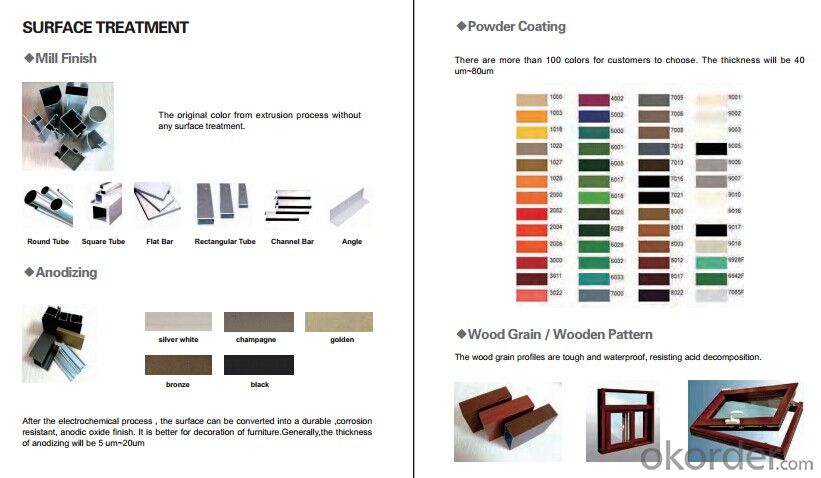
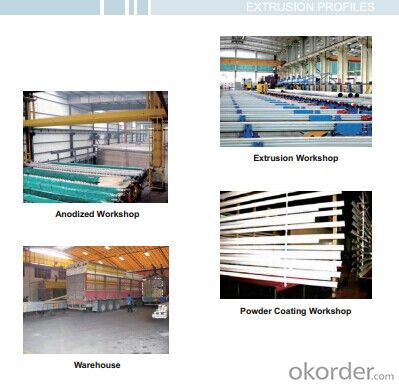
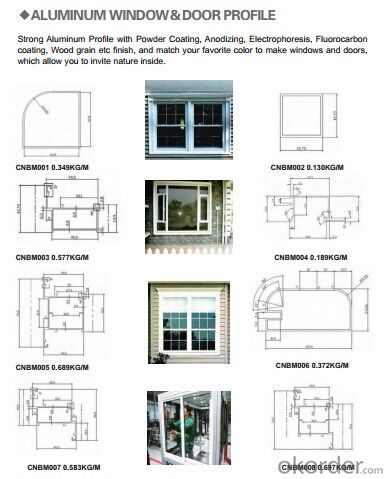
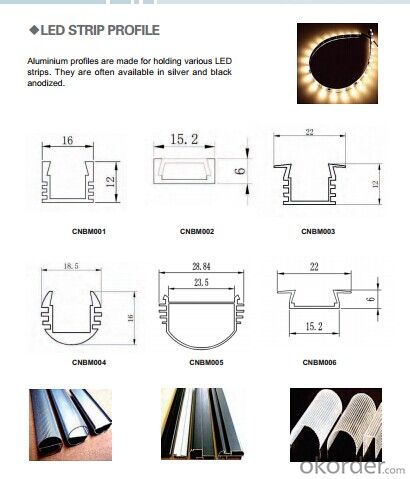
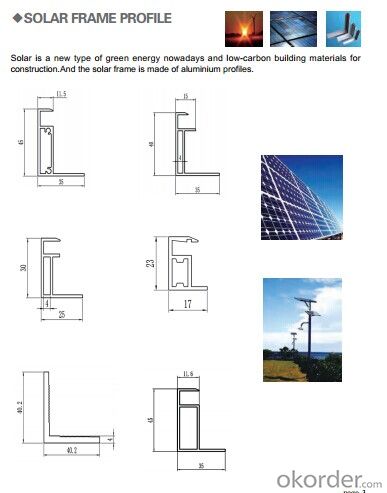
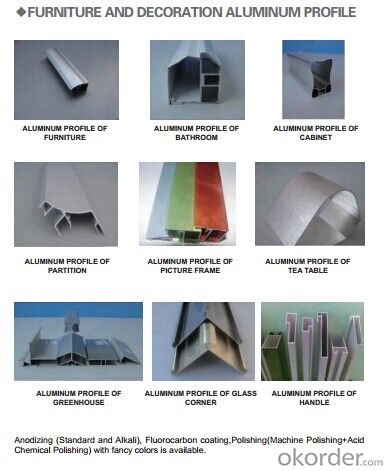
- Q: What are the fireproofing properties of aluminum profiles?
- Aluminum profiles possess excellent fireproofing properties due to their high melting point, which is around 660 degrees Celsius. This allows them to withstand high temperatures and prevent the spread of fire. Moreover, aluminum does not burn or produce toxic gases when exposed to flames, making it a safe and reliable material for fireproofing applications.
- Q: Can aluminum profiles be used for framing mirrors?
- Yes, aluminum profiles can be used for framing mirrors. Aluminum is a versatile and lightweight material that provides a sleek and modern look to any mirror frame. It is commonly used in various industries, including architecture and interior design, due to its durability, corrosion resistance, and ease of customization. Aluminum profiles come in a variety of shapes and finishes, allowing for endless design possibilities to match any style or decor. Additionally, aluminum frames are easy to install and maintain, making them a popular choice for framing mirrors in both residential and commercial settings.
- Q: Are aluminum profiles suitable for use in medical device manufacturing?
- Yes, aluminum profiles are appropriate for use in the manufacturing of medical devices. Aluminum is a widely utilized material in various industries, including medical device manufacturing, because of its exceptional properties. To begin with, aluminum profiles possess a combination of lightweight and strength, making them well-suited for medical devices that necessitate both durability and portability. The lightweight nature of aluminum profiles enables easier handling and reduces the overall weight of medical equipment, which can be advantageous for healthcare professionals and patients. Secondly, aluminum exhibits resistance to corrosion, a vital characteristic in medical device manufacturing. Medical devices frequently come into contact with liquids, chemicals, and bodily fluids, which can cause corrosion and deterioration over time. However, aluminum profiles demonstrate excellent corrosion resistance, guaranteeing the longevity and dependability of medical devices. Moreover, aluminum profiles can be easily molded into intricate shapes and designs, facilitating customization and versatility in medical device manufacturing. This adaptability in design permits the production of devices that meet specific requirements, ensuring optimal functionality and usability for medical professionals and patients. Additionally, aluminum is non-toxic and non-magnetic, making it suitable for medical applications where these properties are crucial. Aluminum profiles do not pose any health risks or interfere with magnetic resonance imaging (MRI) or other sensitive medical procedures. In conclusion, aluminum profiles are highly suitable for use in the manufacturing of medical devices due to their lightweight, corrosion-resistant, customizable, non-toxic, and non-magnetic properties. These factors contribute to the production of high-quality, durable, and safe medical devices that meet the demanding needs of the healthcare industry.
- Q: How to sell and sell industrial aluminium profiles?
- For the industrial aluminum profile enterprise, this is the most valuable customer resource, and also is the high-quality customer we usually call. Of course, the quality of customer mining, the most important thing is to discuss and communicate with customers. We must start from the position of customers, understand their requirements for products, know what they want to achieve the desired, can use their brains, for them to benefit by mutual discussion, analysis and reflection, so customers are thinking, anxious customers, so in fact, let customers choose our is the logical thing. It should be said that this is the most critical moment in the whole sale, so don't let yourself lose here.
- Q: This question asks for the correct procedure to install aluminum profiles.
- <p>To install aluminum profiles correctly, follow these steps: 1. Measure and mark the positions where the profiles will be installed. 2. Clean the surfaces to ensure proper adhesion. 3. Use a suitable adhesive or mechanical fasteners recommended for aluminum. 4. Align the profile with the marked positions and secure it in place. 5. Check for level and plumb, and adjust as needed. 6. Wipe away any excess adhesive and clean the profile. 7. Allow the adhesive to cure according to the manufacturer's instructions. 8. Inspect the installation for any gaps or misalignments and make corrections if necessary. Always refer to the specific installation guidelines provided by the aluminum profile manufacturer for best results.</p>
- Q: What are the different tolerance levels for aluminum profiles?
- The tolerance levels for aluminum profiles can vary depending on the specific application and requirements. However, some common tolerance levels for aluminum profiles include dimensional tolerances, such as length, width, and thickness variations, as well as straightness, flatness, and surface finish tolerances. These tolerances ensure the desired precision and consistency in the manufacturing and assembly of aluminum profiles.
- Q: Is it possible to use aluminum profiles as materials for flooring?
- <p>Aluminum profiles can indeed be used for flooring materials, particularly in industrial or commercial settings. They are valued for their strength, durability, and resistance to corrosion. Aluminum profiles are often used in modular flooring systems, providing a stable and customizable base that can be easily adjusted or reconfigured. They are also appreciated for their lightweight nature, which can reduce the load on structures and facilitate installation. However, for residential applications, traditional flooring materials like wood, tile, or carpet are more common due to aesthetic and comfort considerations.</p>
- Q: Are aluminum profiles suitable for use in the mining industry?
- Yes, aluminum profiles are suitable for use in the mining industry. Aluminum is a lightweight, yet strong and durable material that offers numerous advantages for mining applications. One key advantage of aluminum profiles is their excellent corrosion resistance. In the mining industry, where equipment is often exposed to harsh environmental conditions and chemicals, this corrosion resistance is crucial. Aluminum profiles can withstand exposure to moisture, chemicals, and other corrosive substances without deteriorating, ensuring long-lasting performance and reducing maintenance costs. Another benefit of aluminum profiles is their high strength-to-weight ratio. Aluminum is significantly lighter than other metals commonly used in mining equipment, such as steel. This lightweight characteristic makes aluminum profiles easier to handle, transport, and install, saving time and labor costs. Despite its lightweight nature, aluminum profiles are still strong enough to withstand the demanding conditions of the mining industry, making them a reliable choice for various applications. Additionally, aluminum profiles offer excellent thermal conductivity. This property is advantageous in mining operations that involve heat-generating machinery or processes. Aluminum profiles can efficiently dissipate heat, preventing equipment overheating and enhancing overall safety and productivity. Furthermore, aluminum is a non-magnetic material, making it ideal for mining operations that require non-magnetic equipment. This characteristic ensures that aluminum profiles will not interfere with sensitive equipment or disrupt magnetic fields, maintaining the accuracy and reliability of mining processes. In summary, aluminum profiles are highly suitable for use in the mining industry due to their corrosion resistance, high strength-to-weight ratio, thermal conductivity, and non-magnetic properties. Using aluminum profiles in mining equipment can enhance performance, reduce maintenance costs, and improve overall efficiency in various mining applications.
- Q: How do aluminum profiles perform in terms of vibration resistance?
- Aluminum profiles exhibit excellent vibration resistance due to their inherent stiffness and high strength-to-weight ratio. The material's low density helps in dampening vibrations, while its structural integrity ensures minimal deformation or fatigue under dynamic loads. Additionally, aluminum profiles can be further enhanced with vibration-damping materials or techniques to optimize their performance in vibration-prone applications.
- Q: Can aluminum profiles be used for modular shelving systems?
- Yes, aluminum profiles can be used for modular shelving systems.
Send your message to us
Aluminum Trim Profiles for Aluminum Profile Extrusion
OKorder Service Pledge
OKorder Financial Service
Similar products
Hot products
Hot Searches
Related keywords
